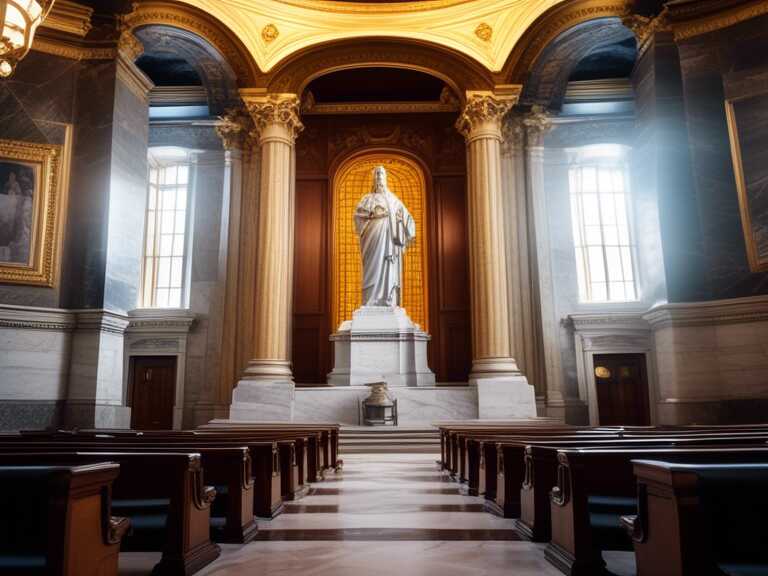
Supreme Court Rules in Favor of Postal Worker in Religious Freedom Dispute
Supreme Court rules for postal worker in religious freedom case. Mississippi man pleads guilty to vandalizing pagan idol statue, hate crime charge dropped.

The U.S. Supreme Court has issued a unanimous ruling in favor of a postal worker from Pennsylvania, marking a significant victory in a religious liberty dispute. This case has sparked discussions about the extent to which employers should accommodate faith-based requests in the workplace.
A Mississippi man, who is a former Republican congressional candidate, entered a guilty plea in connection to the vandalism of a statue of a pagan idol at the Iowa state capitol. This plea resulted in the dropping of a hate crime charge against him. Michael Cassidy pleaded guilty to a reduced charge of third-degree criminal mischief, and the trial slated for June 3 was averted.
Case Background
Michael Cassidy's attorney, Sara Pasquale, expressed satisfaction with the decision to drop the hate crime charge, emphasizing that the defense had consistently contested the allegation and raised concerns about potential targeting based on religious beliefs. This development has raised hopes that similar cases in the country will receive wider attention.
Cassidy admitted to partially dismantling a display of the pagan idol Baphomet at the Iowa State Capitol without the proper authorization. The statue, which belonged to the Satanic Temple of Iowa, was irreparably damaged. Its display within the state capitol during holidays had sparked outrage from various state and national leaders, including Iowa Governor Kim Reynolds and Florida Governor Ron DeSantis, who was a presidential candidate at the time.
Plea Agreement
Under the terms of the plea agreement, Cassidy will receive a deferred judgment along with two years of probation. Additionally, he will be subject to an $855 civil penalty and will be responsible for paying restitution, the amount of which is yet to be determined. The agreement also entails Cassidy's participation in a victim-offender dialogue with representatives of the Satanic Temple upon request. Nonetheless, the court is not bound by the sentencing recommendation.
Prosecution's Decision
Cassidy's attorney, Sara Pasquale, expressed uncertainty regarding the factors that led to the dropping of the hate crime charge. The spokesperson for the Polk County Attorney's Office, Lynn Hicks, outlined that several considerations, including accountability for the criminal conduct, cooperation with law enforcement, availability of evidence, and the defendant’s lack of criminal history, were taken into account when offering the plea agreement.
Share news















